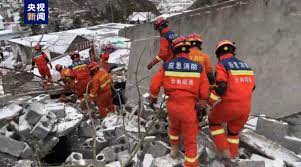China sentences journalist to jail on spy charges

A Beijing court has sentenced veteran Chinese state media journalist Dong Yuyu to seven years in prison on charges of espionage, his family confirmed. Dong, a senior columnist for the Communist Party’s Guangming Daily, was detained in February 2022 at a Beijing restaurant along with a Japanese diplomat. While the diplomat was released after a brief questioning, Dong, 62, has remained in custody and was officially charged with espionage last year.
According to a statement from his family, the Beijing No. 2 Intermediate People’s Court convicted Dong of espionage, which requires the prosecution to prove the defendant knowingly acted on behalf of espionage organizations or their agents.
The court’s ruling linked Dong’s meeting with Japanese diplomats, including former ambassador Hideo Tarumi and current Shanghai-based diplomat Masaru Okada, to an “espionage organization.” Dong’s family expressed shock at the Chinese authorities’ characterization of the Japanese embassy as an “espionage organization” and the accusation that the diplomats were spies.
In response to the case, Beijing’s foreign ministry stated that “China is a country ruled by law” and that judicial authorities handle such matters strictly according to the law. Ministry spokesperson Mao Ning emphasized that those who violate the law will face investigation. The Japanese embassy declined to comment on the case but reaffirmed that Japan’s diplomatic activities abroad are conducted legitimately.
Under Chinese law, individuals convicted of espionage can face prison sentences ranging from three to 10 years for less severe cases, while more serious cases may result in life imprisonment or heavier penalties.
Dong has been a prominent journalist, with his work published in the Chinese editions of The New York Times and The Financial Times. He also earned a Nieman Fellowship at Harvard University in 2006-2007, and has held academic positions at Keio University in Japan and Hokkaido University.
Dong’s sentencing highlights the tightening control over civil liberties and freedom of expression in China under President Xi Jinping’s administration, which has seen increasing restrictions on domestic media and foreign collaborations. As of December last year, China was ranked as the worst country for jailing journalists, with 44 reporters imprisoned, according to the Committee to Protect Journalists.
This case follows other high-profile espionage charges in China, including the recent conviction of dissident writer Yang Hengjun, who was sentenced to a suspended death sentence after being found guilty of espionage in February.





